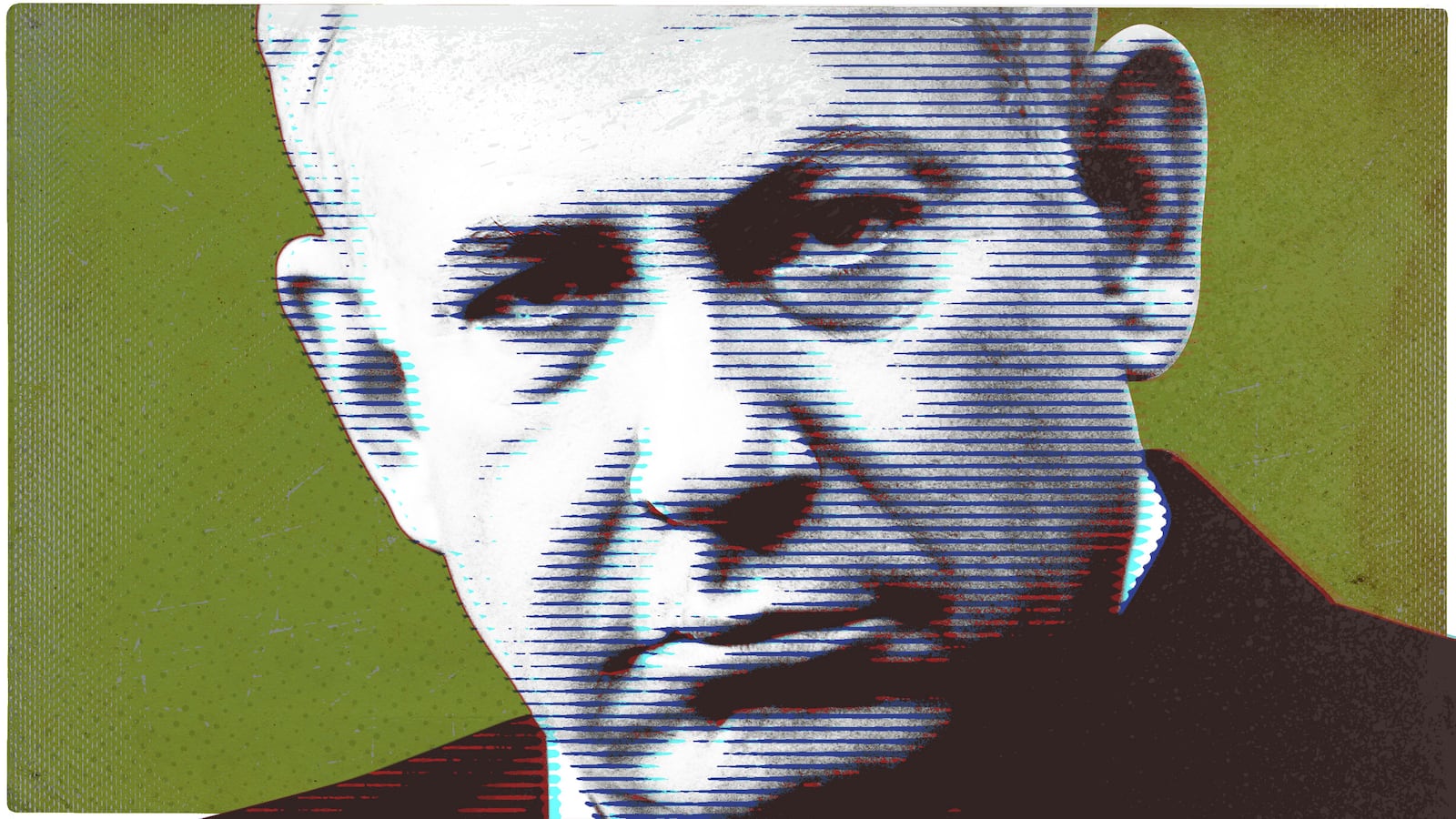TEL AVIV, Israel—Israeli Prime Minister Benjamin Netanyahu is fighting to save his career in a battle against Israel’s police force, which has recommended bringing indictments against him on a slew of corruption charges.
In a long expected yet still dramatic conclusion to an 18-month investigation, it was announced Tuesday night that police investigators believe charges should be brought for fraud, breach of trust, and—most devastatingly of all—bribery.
In a no less dramatic live address to the nation (usually saved for instances of real war), the prime minister pleaded his innocence, claiming not only that his goal always is the “future and security of the State of Israel” and “the good of the country,” but that the entire police investigation was a political witch-hunt meant to topple him.
In a tactic familiar to those observing the White House, Netanyahu has thrown the integrity of the police into doubt, going so far as to call for the investigation of the investigators investigating him. In this 2017-2018 annus absurdum, life in Israel doesn’t so much imitate art as it imitates Donald Trump.
And yet, in the Israeli system, it’s not the police that issue indictments, but the Attorney General. The police investigate, questioning witnesses and gathering evidence, after which they summarize the case and decide whether an evidentiary basis exists to move forward with an indictment. This summation is then transferred to the State Prosecutor (the body tasked with trying a criminal case) and the Attorney General. The police conclusions are therefore referred to as “recommendations” based on the police’s judgement, and not legally binding.
Binding or not, though, what do the police conclude happened in the two major Netanyahu corruption probes?
In the first, “Case 1000” as the police call it, Netanyahu is alleged to have received expensive gifts—including high-end cigars, Champagne, and jewelry totaling 1 million shekels (nearly $300,000)—from Hollywood producer Arnon Milchan and Australian billionaire James Packer. The police now allege that in return for this lavish quid, Netanyahu worked to provide financially beneficial quos to Milchan in particular: tax breaks possibly worth millions of dollars in total, a renewed U.S. visa, and the introduction of three other business schemes that would be helpful to Milchan.
Aside from the size of the gifts, the major police revelation was arguably the tax break provision that Netanyahu pursued—again, allegedly on behalf of Milchan—as well as the fact that the quantity of the gift giving increased dramatically once Netanyahu took office nearly a decade ago.
The second case, “Case 2000,” is allegedly a straight favor-trading gambit between Netanyahu and the publisher of Yediot Aharonot, a local mass-circulation daily. Recordings surfaced last year of conversations between the prime minister and the publisher negotiating better coverage for Netanyahu in return for legislation and other moves favorable to Yediot’s bottom line. Here, the major police revelation was arguably that Netanyhau convened a meeting of several parliamentarians in order to move these plans forward, indicating the seriousness of his intentions—not just the usual minor backroom dealings between politicians and the media.
Netanyahu, for his part, has publicly rejected the accusations, oftentimes in painstaking detail, calling the police recommendations a “biased document, extreme, riddled like Swiss cheese and doesn’t hold water.” Netanyahu claims that in the first case, gifts are permitted between “close family friends”—one lawyer advising the prime minister even called them “brothers”—and that he in fact “worked against Milchin’s interests” in many of the alleged instances. In the second case, Netanyahu claims that the deal with the publisher was clearly never consummated: Yediot’s fervently anti-Netanyahu editorial line remained, and Netanyahu per his interpretation called snap elections precisely in order to torpedo legislation meant to diminish the power of a rival daily (owned by yet another billionaire Netanyahu friend, Sheldon Adelson).
So why does this mind-numbing minutiae matter? Because politically and legally, Netanyahu and his allies have masterfully sown doubt about the exact details of the allegations and the individual police officers making the allegations. Vast left-wing conspiracies involving the media, police, and opposition parties have been proffered, with several Likud parliamentarians calling it an “attempted legal putsch” against a democratically-elected government. For their past, opposition lawmakers allege, with reason, that this is precisely “how criminals talk.” Whether you believe one side or the other usually comes down, at bottom, to your political allegiance.
Inexplicably, the police commissioner, Roni Alsheich, a mustachioed former intelligence officer, chose to waddle into this polarized swamp, giving a wide-ranging television interview last week. Alsheich stated that the police had evidence that “powerful elements” had sent private investigators to gather dirt on officers involved in the Netanyahu probe. That would be like special counsel Robert Mueller allowing 60 Minutes to interview him in real-time about the ongoing Trump-Russia collusion investigation.
The prime minister immediately made political hay out of Alsheich’s allegations, claiming the investigators couldn’t possibly be objective “if they believed I acted against them.”
Oshri Ben-Ishai, a Tel Aviv defense attorney—with experience in both organized crime and party political cases—told The Daily Beast that the police commissioner had made a terrible mistake. He suggested obstruction of justice charges could even be brought against him for speaking out before the police recommendations were made public.
“If the police allegations are true, it would be like if a judge trying a mob case found a grenade outside his home. How would the judge respond? It would have to impact his thinking even if he didn’t know for certain it was that specific gangster,” Ishai said.
The smokescreens seem to be paying off for Netanyahu: the immediate danger of the police recommendations – and the premier’s alleged corrupt dealings – coming to light and sparking a public outcry have not come to pass. All of Netanyahu’s coalition partners quickly closed ranks, saying they would wait patiently for Attorney General Avichai Mandelblit’s decision on the cases. This could take months, with many pointing to this coming fall as the most likely timeframe. Per the Israeli judicial system, Mandelblit must now study the case; make a preliminary decision regarding an indictment; and then allow Netanyahu to present his side of the story at a hearing. Only after that does he makes his official decision.
In all likelihood, Netanyahu may be safe in the short-term—all it took was sacrificing the integrity of his law enforcement system and democratic norms. Indeed, he woke up this morning the only prime minister in Israel’s sordid (political) history to remain in office as indictments loomed.
Yet this is simply the end of the beginning of Netanyahu’s legal saga, not the beginning of the end. At some point he will have to address the allegations arrayed against him by the police. Legal experts here are divided over what Mandelblit will ultimately decide to do.
“Unlike Ehud Olmert, there is no ‘live money’ involved here,” Ben-Ishai said, referring to Netanyahu’s predecessor as prime minister. Olmert was forced to resign after evidence connected him to envelopes stuffed with cash—he was later found guilty and jailed. “With Netanyahu now, these really are gifts. It’s very dirty, but Mandelblit has to decide that it’s also criminal.”
Legal interpretations, and hence the evidentiary details, are crucial. Are there enough witnesses to prove that the prime minister pushed for new tax laws solely because his gift-peddling friend asked him to? Were these gifts material ethical breaches and outright bribes, or simply expensive expressions of affection between two well-heeled friends? Was Netanyahu sincere in passing legislation knee-capping his patron Adelson’s newspaper?
The police have responded in the affirmative to all of the above—and more—saying outright that Netanyahu in these dealings “worked against the interests of the state.” It’s now Mandelblit’s turn to provide his own interpretation.
In his address to the nation last night, a stern-looking Netanyahu spoke of his many decades “fighting for Israel’s security,” the unending criminal investigations against him going back to the 1990, along with his current line of defense against the police allegations. “All these efforts, without exception, ended with nothing,” he said. “This time, too, things will end with nothing.”
He promised that his government would fulfill its term, and that elections would be held on time late next year.
Undermining the power and confidence Netanyahu was attempting to project, every few seconds drops of precipitation fell from an unknown locale between the camera and the podium. It was disorientating for the nation watching at home, yet Netanyahu for his part didn’t seem to notice. A little more time is needed to find out whether he can continue dancing through the raindrops.






